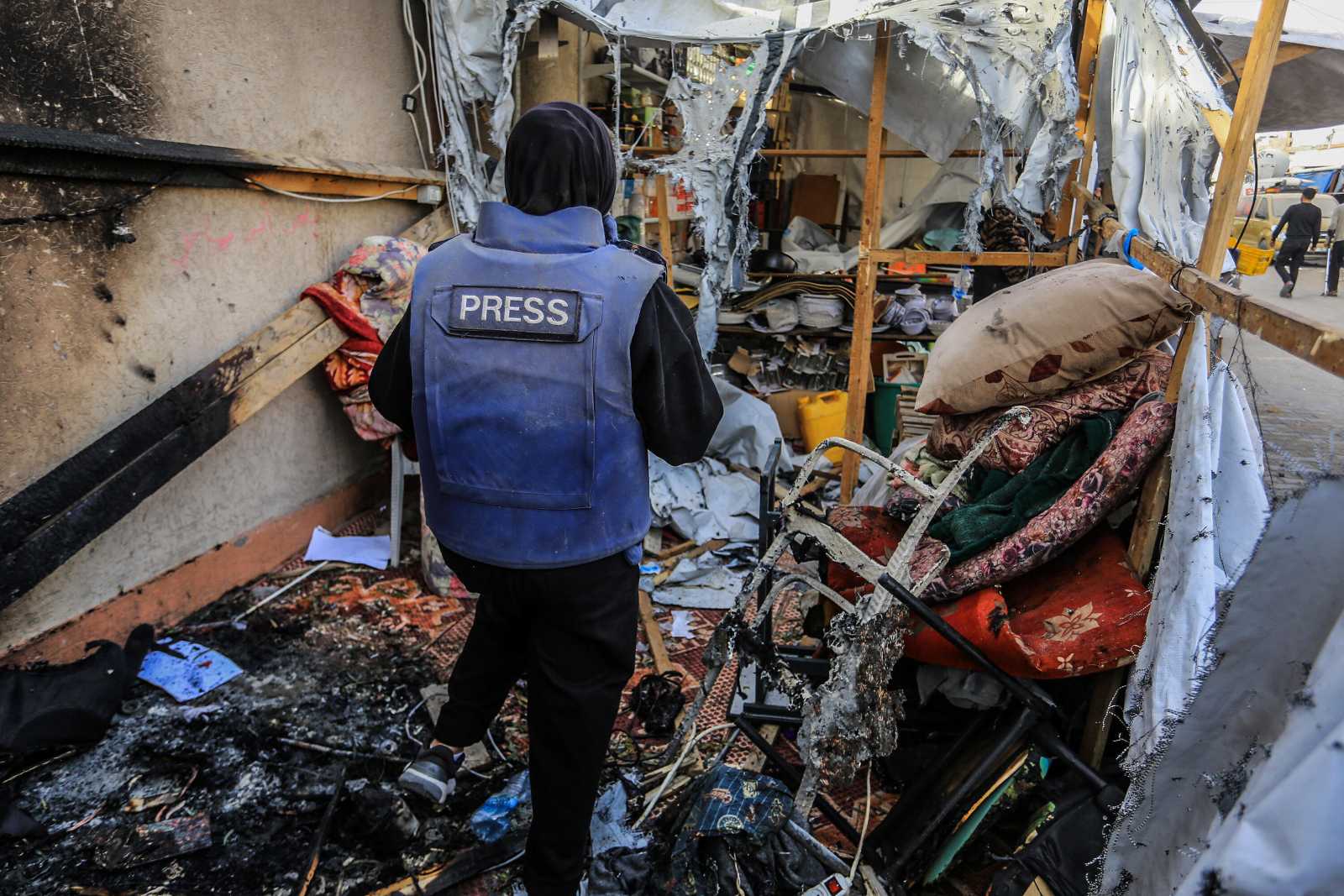Municipal cooperation
Revolution and garbage management
By Sheila Mysorekar
Souad Sassi works for the mayor’s office in Tunis: “Today, we can finally change things at the local level,” she says proudly. Waste management, for instance, needs to be improved. Like many other Tunisians, Sassi is impressed by the momentum of the Jasmine revolution and excited about the possibilities that democracy offers. At the same time, her municipal government must sort out mundane things like garbage disposal.
The country’s situation is unstable. There are lots of strikes. Infrastrucutre is poor. Drinking water, electricity and healthcare are major challenges. Many buildings, including municipal facilities, are becoming dilapidated. Town councils are unable to guarantee a minimum level of services. According to Sassi, who is in charge of international affairs at the mayor’s office, 40 % of the people work in the informal sector.
“Nobody wants to turn back the clock,” Sassi maintains. “Civil society mobilisation has been amazing. However, we have great structural problems. We need better services, a transparent bureaucracy and local self-government.”
Recently, the city of Tunis set up an office for good governance and political decentralisation. In many neighbourhoods, citizens organised committees of their own during the revolution. It would now make sense to involve them in local governance.
On these matters, Tunis is cooperating with Cologne, its twin city in Germany. The partnership was established in 1964, but has been drastically changed by the revolution. “We basically used to organise cultural events and youth exchange,” says Uwe Korch from the mayor’s office in Cologne. “Now we cooperate on a much wider scope of projects. For instance, we help maintain street lights and manage landfills.” Cologne will soon send used, but still operational garbage trucks to Tunis.
Cologne is not the only German city which is engaged in the Maghreb. In December 2011, German towns with an interest in supporting North African development formed a network, convened by the German Association of Cities, an umbrella organisation of towns with 50,000 and more inhabitants. Together, these towns represent 51 million of 83 million people in the Federal Republic. The Association promotes municipal self-government and serves as a lobby. Sabine Drees, a staff member, says the Association wants to convey the idea of municipal self-government to partners in the Maghreb.
In April, the network held a conference with North African partners in Bonn. Participants discussed current challenges and how to tackle them. Municipal representatives from Tunisia and Egypt pointed out that many problems are the legacy of the dictatorships, including overblown centralisation and workforces with few skills. Moreover, people are not used to becoming involved in public affairs. Difficulties are compounded by the economic downturn.
“We first have to understand people’s expectations,” says Anita Reddy from ENGAGEMENT GLOBAL’s Service Agency Communities in One World. “On that basis, German partners can offer expertise and support in a more meaningful way.”
The Arab Spring is about radical change in society and institutions, driven by young people, especially in the urban areas. People’s expectations are very specific. They want work, infrastructure, housing and democracy. These issues are relevant at the local level, not only the national one. Ultimately, the revolutionaries’ success will depend on municipal performance.
Some city councils face particularly hard challenges. Ben Guardane in Tunisia’s east is an example. This small town is located on the border to Libya, and its economy has benefited from cross-border trade. Some 2 million people have recently fled from Libya to Tunisia, however, and border towns are bearing the brunt. Munir Brik, chairman of Ben Guardane’s Association for the Development, considers the situation of his town unstable, but puts great hopes in civil society. “The police do not work as they should, there is no proper sewage system, and we have more smuggling across the border than real trade – but up to now, our town has coped.”
Due to the crisis in Libya, trade has declined drastically, and tax revenues in Tunisian border towns dropped in equal measure. Nonetheless, Brik considers the 4000 refugees that now reside in his home town a gain. “They are the manpower we need for development”, he says, “therefore we must regulate their papers fast.”
The council of Ben Guardane gets advice from German municipal governments. The Association of German Cities and its North African partners, moreover, are supported by a GIZ programme called CoMun (Coopération des Villes et des Municipalités au Maghreb – Empowerment of local structures in the Maghreb). On behalf of Germany’s Ministry for Economic Cooperation and Development (BMZ), it is supporting municipal capacity development in the Maghreb and promoting partnerships of German and North African towns.
CoMun is geared to reviving municipal partnerships on the base of specific projects. The idea is to strengthen local governments and make them drivers of economic growth and socio-cultural progress. All too often, however, local authorities in Tunisia and Egypt suffer from poor self-management, inadequate funding and a lack of authority. Many municipalities are hardly working any more.
Meinolf Spiekermann, CoMun programme manager, does not see any major problems for German partners in North Africa – apart from language. “German municipal governments can turn their good intentions into tangible projects. And there are positive side-effects in terms of intercultural exchange and better understanding among our nations.”
Sheila Mysorekar








